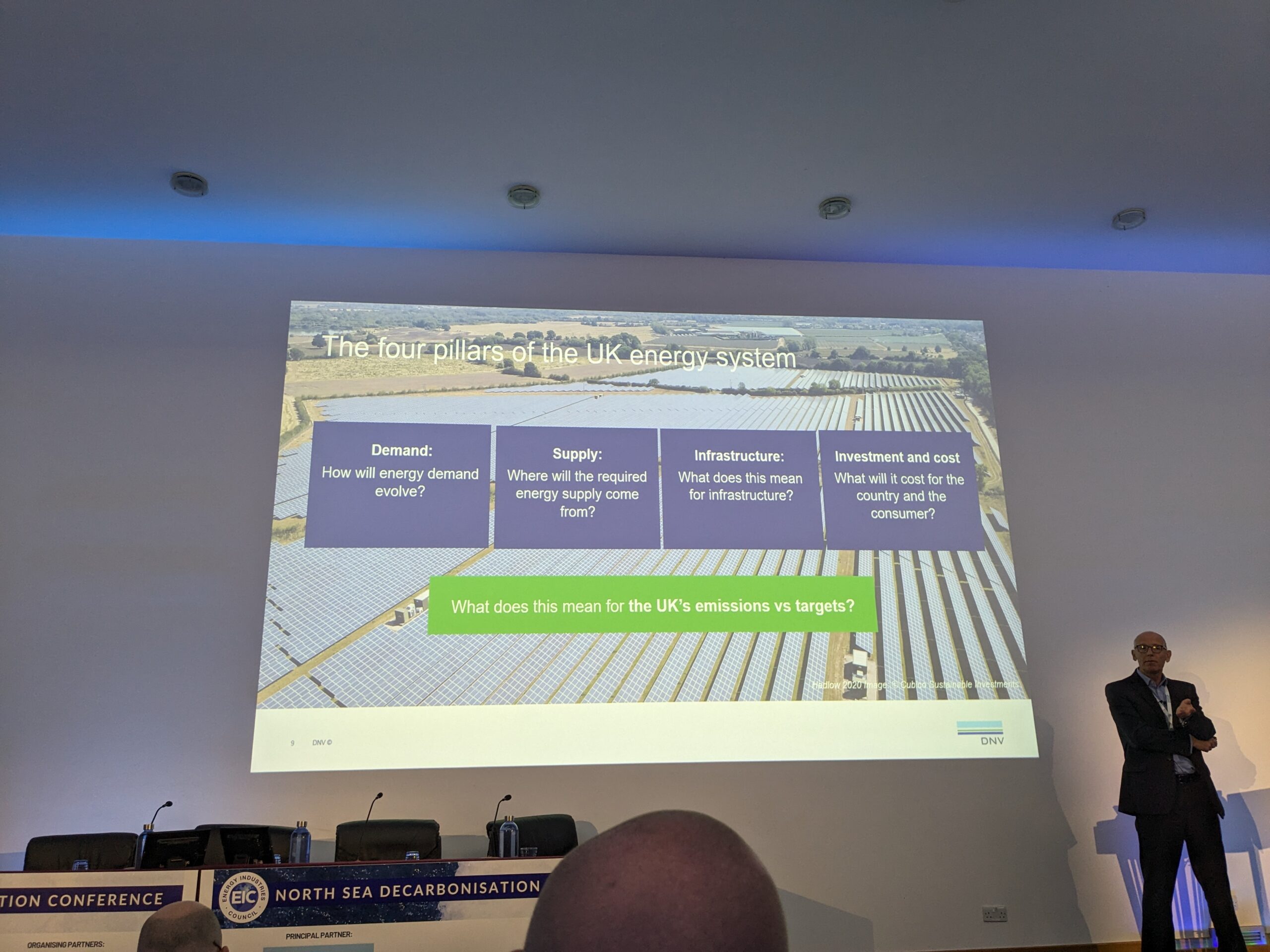UK to exceed 2037 emission targets by 37%, miss net zero goal: conference
The UK is set to exceed its GHG emissions target for the period 2033-2037 by 37%, a conference in London heard Tuesday.

(London, United Kingdom) — The UK is set to exceed its GHG emissions target for the period 2033-2037 by 37% and to fail to achieve its net zero by 2050 target, amid regulatory uncertainty and an investment slowdown in key areas including hydrogen, CCS and electrification, a conference heard Tuesday.
While the country has managed to reduced its emissions by 50% against 1990s levels, GHG emissions are forecast to remain at above 250 MtCO2/year over that period, against a target of just below 200 MtCO2/year set by government, Frank Ketelaars, energy systems operations manager of the UK and Ireland at DNV Energy Systems, said at the North Sea Decarbonisation Conference in London.
Furthermore, emissions are set to remain at 125 MtCO2/year by 2050, equivalent to an 85% reduction against 1990s levels.
“Decisions that need to be taken now are being pushed back…I don’t see the big decisions being taken that should make [net zero] happen,” meaning “we’re locking ourselves into a fossil fuel,” system, he said.
In particular, there needs to be a “clear long-term policy” on key areas such as offshore floating wind, hydrogen and CCS and a subsidy system in place, he said.
Residual emissions are mainly due to the residential heating and transport sectors, with half of UK homes still relying on gas for heating by 2050, he said.
While for “EVs the end-game is clear” amid a goal to phase out internal combustion engine (ICE) vehicles, decarbonising heating presents a more uncertain outlook, as heat pump costs remain high, he added.
Amid that trend, fossil fuels are still expected to account for 35% of total primary energy supply by 2050, or around 500 TWh/year, against 80% today.
Lingering fossil fuel reliance means carbon capture and storage (CCS) and hydrogen have a key role to play in the future energy system, he said.
Nevertheless, hydrogen uptake is still expected to be limited to hard-to-electrify sectors, such as industry, as well as airtime and aviation transport, and the country is likely to miss hydrogen targets.
The government has set a goal of 10GW electrolysers capacity by 2030, with 11 hydrogen projects totalling 125 MW having already been allocated some £2 billion as part of the first round of funding last December. A second round is already being planned.
While hydrogen development is progressing, uncertainty over regulation and funding models, as well on off-takers and end-users amid a lack of agreement over the role of blue and green hydrogen are hampering investments, Neil Golding, director of market intelligence at the EIC, said.
While Germany, Denmark and the Netherlands are currently leading the way with most of the hydrogen projects coming on stream between now and the end of the decade being located in these countries, the vast majority of projects coming online between 2030 and 2035 will be in the UK, he said.
CCS on the other hand is set to play a role in power generation and industry decarbonisation, reaching 40 MtCO2/year by 2035, Kestelaar said.
Electricity generation is expected to become fully decarbonised by 2035, with gas-fired generation dropping form 42% today to less than 5%, and CCS contributing to decarbonise residual fossil fuel generation.
Meanwhile renewable energy is expected to grow exponentially in DNV’s forecasts, accounting for around 80% of power generation in 2050, the vast majority of which is wind.
Under the Ostend Declaration in April 2023, North Sea countries including the UK committed to a 300 GW offshore wind target by 2050, against 34 GW currently.
“Offshore wind is a particular success story for us” amid the UK already hosting some of the world’s largest operational installations, the newly appointed UK minister for energy security and net zero, Justin Tomlinson said.
Intervening at the same event, he said that the UK was focused on collaboration with other North Sea countries to develop green energy solutions and “make the most of new technologies, like wave and tidal” energy.
He said the UK was “world leading” in decarbonisation and emissions reduction.
“Net zero is one of the great challenges of our era…We have to collectively be pragmatic and realistic if we’re going to meet and exceed targets.”
The UK Continental Shelf has some of the world’s biggest carbon storage potential, estimated at up to 78 billion tonnes.
The government awarded 21 licences last September as part of its first ever CCS licensing round.
This approach “could be extended to other countries” in the North Sea, he said.
At the same time, “we must recognise the huge economic benefits that oil and gas brings” as the UK will still rely on oil and gas for decades to come, he said.


